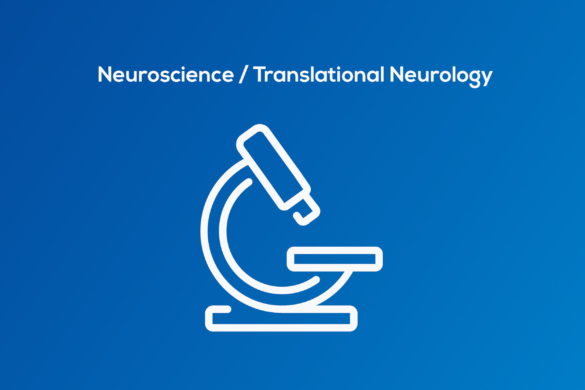Our pick of COVID-19-related cross-sectional case control studies from the scientific press for February 2023.
Category
Research
-
-
COVID-19Research
COVID-19 Research Round-Up: Case Series/Case Reports – February 2023
February 13, 2023Our highlighted selection of Covid-related case series or case reports from the scientific press for Febuary 2023. -
Paper of the MonthEAN NewsResearch
Research Paper of the Month: Headache attributed to SARS-CoV-2 infection, vaccination and the impact on primary headache disorders of the COVID-19 pandemic
February 9, 2023Our February Paper of the Month is a narrative review focusing on epidemiology, pathophysiology and treatment of secondary headache following SARS-COV-2 infection and vaccination, and on the impact of COVID-19 pandemic on primary headache disorders. -
Paper of the MonthEAN NewsCOVID-19Research
COVID-19 Paper of the Month: Long covid outcomes at one year after mild SARS-CoV-2 infection: nationwide cohort study
February 9, 2023Our paper of the month is a retrospective nationwide cohort study that was carried out to determine the clinical sequelae of long covid for a year after infection in patients with mild disease, and to evaluate its association with age, sex, SARS-CoV-2 variants, and vaccination status. -
EAN NewsCOVID-19Research
COVID-19 Research Round-Up: Literature reviews – January 2023
January 17, 2023Our highlighted selection of Covid-related Literature Reviews from the scientific press for January 2023. -
EAN NewsCOVID-19Research
COVID-19 Research Round-Up: Case Series/Case Reports – January 2023
January 17, 2023Our highlighted selection of recent Covid-related case series or case reports from the scientific press for January 2023. -
EAN NewsCOVID-19Research
COVID-19 Research Round-Up: Cross-Sectional Case Control Studies – January 2023
January 17, 2023Our pick of COVID-19-related cross-sectional case control studies from the scientific press for January 2023. -
Paper of the MonthEAN NewsFeatured Slider
Research Paper of the Month: Intensive blood pressure control after endovascular thrombectomy for acute ischaemic stroke (ENCHANTED2/MT)
January 1, 2023Our paper of the month reports the results of the ENCHANTED 2/MT trial, performed in 44 Chinese hospitals to compare more intensive with less intensive blood pressure management after successful endovascular thrombectomy. -
Paper of the MonthEAN NewsCOVID-19Featured Slider
COVID-19 Paper of the Month: The decline in stroke hospitalization due to COVID-19 is unrelated to COVID-19 intensity
January 1, 2023Our authors of the month compared the occurrence of stroke, utilisation of recanalisation procedures, and demographic parameters during the pandemic period with data from the preceding year. -
EAN NewsResident and Research FellowsResearch
Impact of Burnout on Neurology Residents and Research Fellows in Europe
December 23, 2022This recent EAN-funded study investigates the prevalence of burnout profiles and their contributing factors in European neurology residents, junior neurologists, and research fellows. -
EAN NewsCOVID-19Research
COVID-19 Research Round-Up: Meta-analyses/systematic reviews – December 2022
December 23, 2022Our highlighted selection of COVID-19-related meta-analyses and systemic reviews from the scientific press for December 2022. -
EAN NewsCOVID-19Research
COVID-19 Research Round-Up: Cross-Sectional Case Control Studies – December 2022
December 23, 2022Our pick of COVID-19-related cross-sectional case control studies from the scientific press for December 2022. -
Research
Establishment of the new Coordinating Panel on Neuroscience/Translational Neurology
December 22, 2022In order to support and develop expertise in bridging the gap between neuroscience and clinical knowledge the EAN Board has created a Scientific Panel on Neuroscience/Translational Neurology. -
Paper of the MonthEAN NewsFeatured Slider
Research Paper of the Month: Lecanemab in Early Alzheimer’s Disease
December 5, 2022Our authors of the month report the results of a multicentre phase-3 clinical trial exploring efficacy and safety of Lecanemab in patients with early AD over a follow-up period of eighteen months. -
Paper of the MonthEAN NewsCOVID-19Featured Slider
Covid-19 Paper of the Month: Incidence of Epilepsy and Seizures Over the First 6 Months After a COVID-19 Diagnosis
December 5, 2022Our authors of the month conducted a retrospective study of the potential association between COVID-19 and seizures or epilepsy in the six months after infection, using an electronic health records network of 81 million people.








